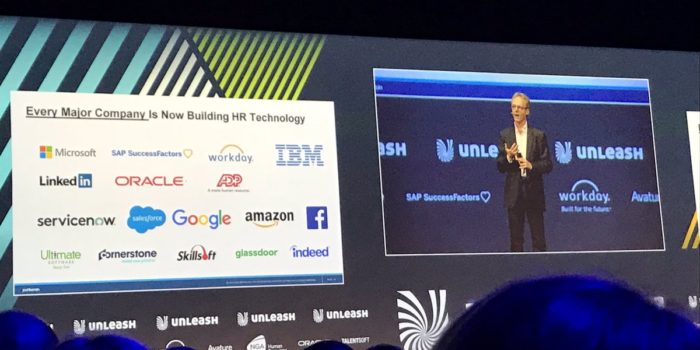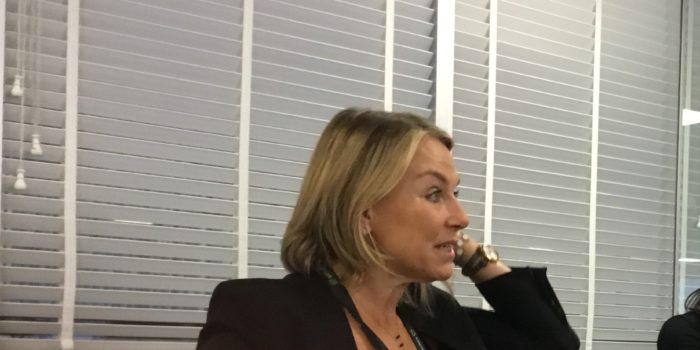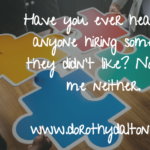One of the main paradoxes of any HR conference focusing on digital and tech, is there is always as much discussion around the human element as the technical stuff. This year at UNLEASH18 I felt it was even more pronounced than usual. Threaded through the event was a strong emphasis on soft skills, emotions, relationships, psychological safety, trust, sustainability, wellness, inclusion and ethics.
Whoever can put this onto an App will be a multi-millionaire.
For me there was one word that stood out and somewhat ironically for a tech setting talking about AI, it was “feelings.” Not just how we feel personally but also understanding how others feel and experience their working lives. The quality of our interactions with each other featured large.
Feelings in the world of AI
No matter how sophisticated A1 becomes, there is one undeniable fact. It can’t feel anything whether joy, stress, anger, excitement, love, happiness or empathy. Feelings in the world of AI and digital are the ultimate paradox.
Anyone who attends an Unleash conference will be familiar with the sensory overload. There’s noise, movement, visual effects and great food. You can’t beat a Dutch Bitterballen. And not forgetting the 4500 people. It’s impossible to go to everything. So I have selected only three areas that highlight for me what seems to be a growing concern that we need to stop neglecting feelings in our increasingly digital worlds. There were many more.
Employee experience
“If people don’t feel that they can use these technologies during their work experience to contribute and improve their work experience, they going to find them less useful than ever.”
Josh Bersin kicked off strongly as usual with the latest updates on HR trends. He told us that with $6 billion of investments in tech start-ups, technology is now way ahead of the workplace. Although there is full employment and increased technology application, he reported that productivity is actually at an all time low. So something is skewed. Bersin emphasised that the success of technology was at risk if employees did not feel it to be valuable or if it did not enhance their individual contribution in the workplace.
Morné Swart, VP Global Product Strategy, SumTotal Systems identified the three top digital initiatives implemented by CHROs in organisations. 60% are using digital technology to enhance the employee experience, 53% are using digital technology to increase employee productivity. Bersin sees employee experience and productivity as one and the same and all tech vendors are now “employee experience vendors.”
Relationships
“We are hired for our skills but let go because of the way we handle our relationships.”
Esther Perel is a leading relationship therapist, author and world renown keynote speaker who offers compelling insights into modern relationships. Bestselling author of books Mating in Captivity and The State of Affairs, she is a veritable powerhouse on stage. She cited a need for a CRO (Chief Relationship Officer) in our businesses. She gave compelling examples of how we bring our personal relationship history into the workplace and explained the way in which these impact a group dynamic. She illustrated how our need for independence, adventure and security can be as mismatched in the workplace as in our private lives.
Perel believes that the quality of our relationships determines the quality of our lives and careers and the same also applies to organisations. Effective relationships grease the wheels of any organisation and make them function successfully. Highly performing organisations are more profitable. Poor relationships can create a toxic corporate culture, where employees feel psychologically insecure with significant fall out. This can include absenteeism, mental health problems, increased errors and reduced creativity.
These are all factors which impact employee engagement, ultimately hitting productivity and therefore profitability. Soft skills and the way leaders make people feel are the new P & L drivers. People leave organisations because they don’t feel recognised. “We want a sense of belonging at work otherwise we will leave.”
Happiness, compassion, altruism
“Happiness is a skill, emotional balance is a skill, compassion and altruism are skills, and like any skill they need to be developed. That’s what education is about.”
Matthieu Ricard, Buddhist monk closed the event, talking about the importance of compassion and altruism. By embracing these concepts we can continue to live next to each other and with each other in greater happiness. With a Ph.D. in cell genetics at the Pasteur Institute in 1972, he moved to the Himalayan region to follow a spiritual path of Tibetan Buddhism. He is actively involved in neuroscientific research on the effects of meditation.
Ricard suggests that altruism, that is having more consideration for others, “is the only unifying concept that allows us to answer the main challenges of the 21st century.” He believes that in this way we can make the world of work and our wider world a kinder and happier place. He urges us to understand that altruism is a necessity not a luxury needed for our long-term sustainability, By committing to transforming ourselves to these principles we will thrive not flounder. The development of altruistic love, compassion and other fundamental human qualities we can help us increase our contribution to society and improve our own feeling of well-being.
The price of AI
I couldn’t help but wonder as David Green the MC encouraged us to lift our heads from our smart phones to talk to the person sitting next to us if we will eventually have an app for that too.
Ding: Message to self….talk.
There is a clear risk that the quality of our interactions will impact our feelings in the world of AI if we let it drive us. We will pay the price and be less effective. It’s important to find the balance and learn that we manage tech and not the other way round. Tech should liberate us from routine processes so we can spend more time on the “feeling” work.
Feelings it would seem are a business issue.








